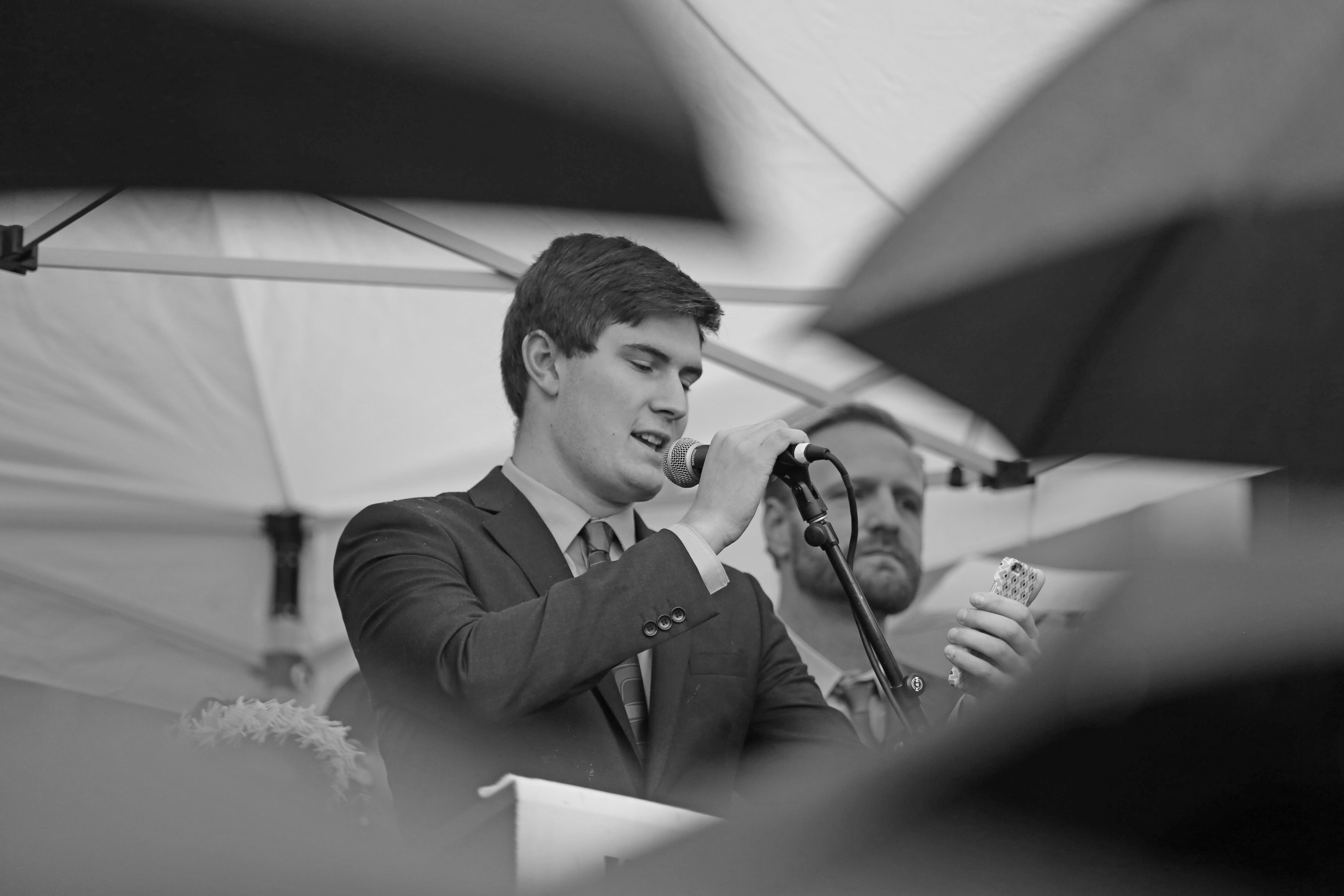Nathan Baring is a first-year Political Science and Biology double major who is one of the twenty plaintiffs of Juliana vs. United States, a national youth climate lawsuit first filed in 2015.
He and twenty other plaintiffs are represented by the non-profit organization, Our Children’s Trust, which has filed several lawsuits against all levels of government, arguing how they have been infringing on youths’ and future generations’ rights to a stable climate system.
In this lawsuit, plaintiffs are holding the United States government accountable for allowing activities that have significantly harmed their right to life and liberty with the goal to convince this higher body to be aware of the greenhouse gases that are being released from capitalist societies like the United States.
Baring first became involved with this lawsuit due to his work from the past.
“I found my first calling when I was thirteen in Fairbanks, Alaska where I’m from. When I went to the state capital in Juno, we were doing a Climate Change science lobbying summit that was in March 2015. That was when I first became interested in politics, such as using systems that we have to enact changes that we want to see,” Baring says.
He was able to interact with state legislators, and he was so enthused by these interactions that he decided to go back the next day to schedule additional meetings to discuss this important issue.
“I’ve always been more drawn to places where I can have dialogue with people that really don’t think like me at all. That includes people from the opposite side of the political spectrum.”
This made him realize that because children do not have voting power, adults do not take them seriously.
Children are often lectured for not knowing what they are talking about or are just speaking on behalf of their elders which is not the case at all.
Nathan tried multiple avenues of civics until he reached the legal system as a plausible option for pursuing a fight to bring awareness about climate change.
It was not long before Our Children’s Trust reached out to him, and countless other amazing youth to be part of this initiative.
“We’ve been at the District Court too many times to count, not all of them were oral arguments but just motions back and forth. Literally the day after my finals are done in June, I’m flying to Portland for another trial, on the way back to Alaska,” Baring said.
Baring feels extremely supported by the organization and the youth involved in this case. He also appreciates how the general public has been so encouraging for all the youth involved.
“I feel like there’s a lot to be said when you know that you are in the right path such as when you know your legal argument is sound, and what you are fighting for is justice. I don’t think there’s much that can daunt you in that situation. You amplify the voices of historically marginalized communities in this issue. You have a new vision for the world and elevating those communities that have been disproportionately impacted by climate change,” Baring said.
The main reason why Baring decided to come to Gustavus was because he liked the campus size, and was drawn to the reputable Biology Department.
Being an invested member of the Environmental Action Coalition has allowed him to foster his inevitable passions and motivation to bring this issue to the forefront.
He believes the EAC is a testament to taking deliberate action, whether it is planning a climate march, or lobbying legislators, or organizing the Groundswell event.
For Baring, this was an impactful, and meaningful day where 300 students marched from Chapel to the Campus Center to show the Administration this was something everyone cared about.
Another important organization he is part of is the Diversity Leadership Council, commonly referred to as DLC.
Baring believes it is an incredibly important organization for bridging divides between students, considering there can be a disconnect between underrepresented voices and what the campus is doing to factor everyone’s narrative into the community.
After Baring graduates from Gustavus, he has a definite, ambitious plan mapped out for the future.
“I am definitely on the pre-law track…I’m planning on working for three to four years in my hometown in Alaska…frankly, I’ve always been more drawn to places where I can have dialogue with people that really don’t think like me at all. That includes people from the opposite side of the political spectrum,” Baring said.
